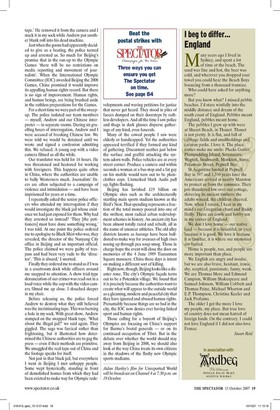I beg to differ... England
Many years ago I lived in Sydney, and spent a lot of time at the beach. The sand was fine and hot, the beer was cold, and wherever you dropped your towel you could hear the Beach Boys bouncing from a thousand trannies.
Who could have asked for anything more?
But you know what? I missed pebble beaches. I'd stare wistfully into the middle distance and dream of the south coast of England. Pebbles meant England, pebbles meant home.
The pebbles I grew up with were at Shuart Beach, in Thanet. Thanet is not pretty. It is flat, and full of cabbage fields and smallholdings and caravan parks. I love it. The place names make me smile: Plucks Gutter, Plumpudding Island, Sevenscore, Wagtail, Stodmarsh, Monkton, Sarre, Paramour Street, Pegwell Bay.
St Augustine landed at Pegwell Bay in 597 and 1,350 years later the Americans arrived at nearby Manston to protect us from the commies. Their jets thundered low over our cottage, shivering its ancient timbers: the adults winced, the children cheered. Now, when I return, I hear in my mind's ear Gregorian chant and Buddy Holly. There are cowls and bobby sox in my corner of England.
We don't love home — our native land — because it is beautiful, or even because it is good. We love it because it is familiar, it is where our memories are buried.
Home is people, too, and people are more important than place.
We English are angry and insular, but we are also brave, hesitant, ironic, shy, sceptical, passionate, funny, weak. We are Thomas More and Edmund Campion, William Shakespeare and Samuel Johnson, William Cobbett and Thomas Paine, Michael Wharton and E.P. Thompson, Christine Keeler and Jack Profumo.
The older I get the more I love my people, my place. But true love of country does not mean hatred of foreign lands. On the contrary. I could not love England if I did not also love France.
Stuart Reid In association with



































































 Previous page
Previous page